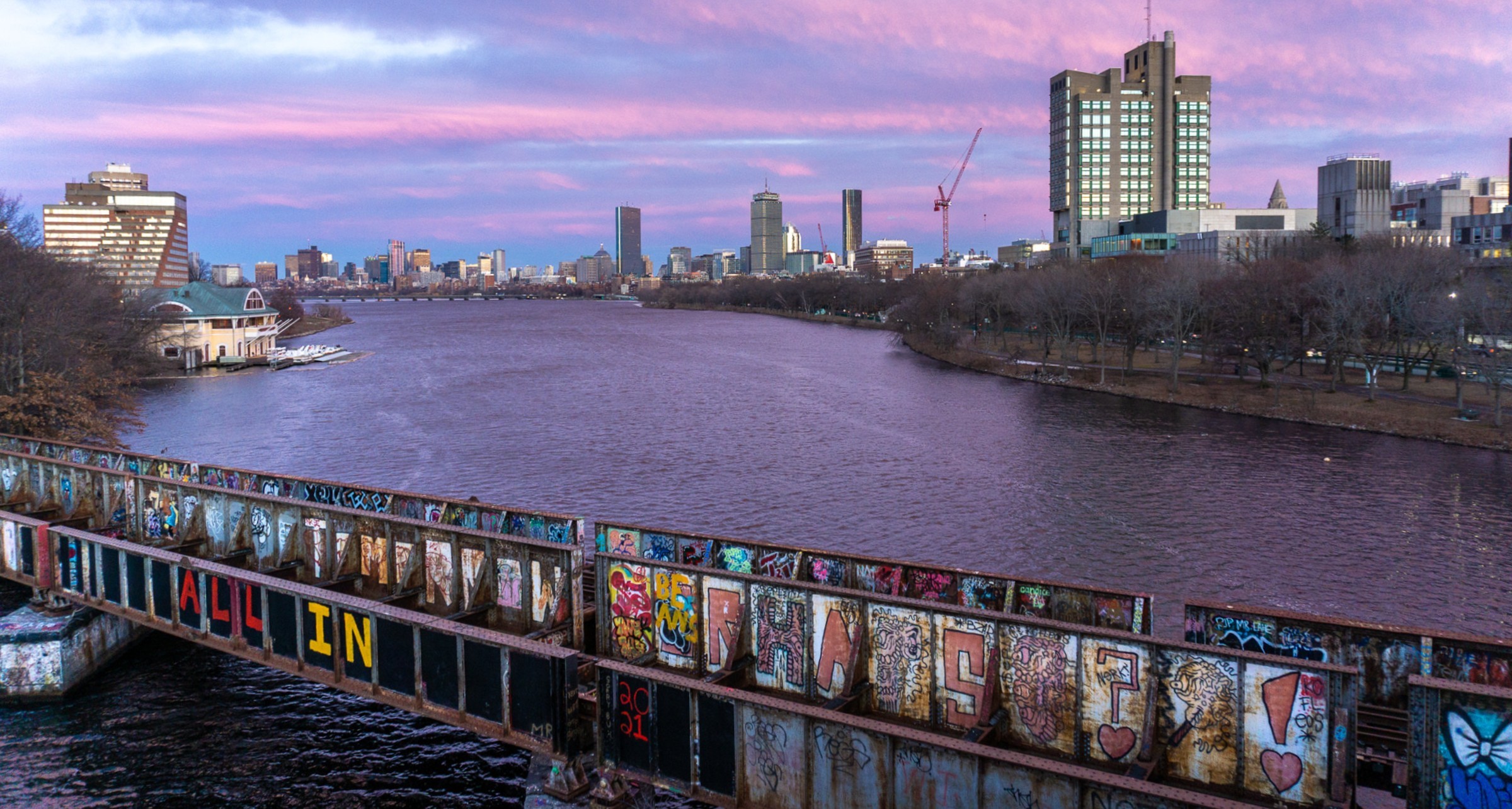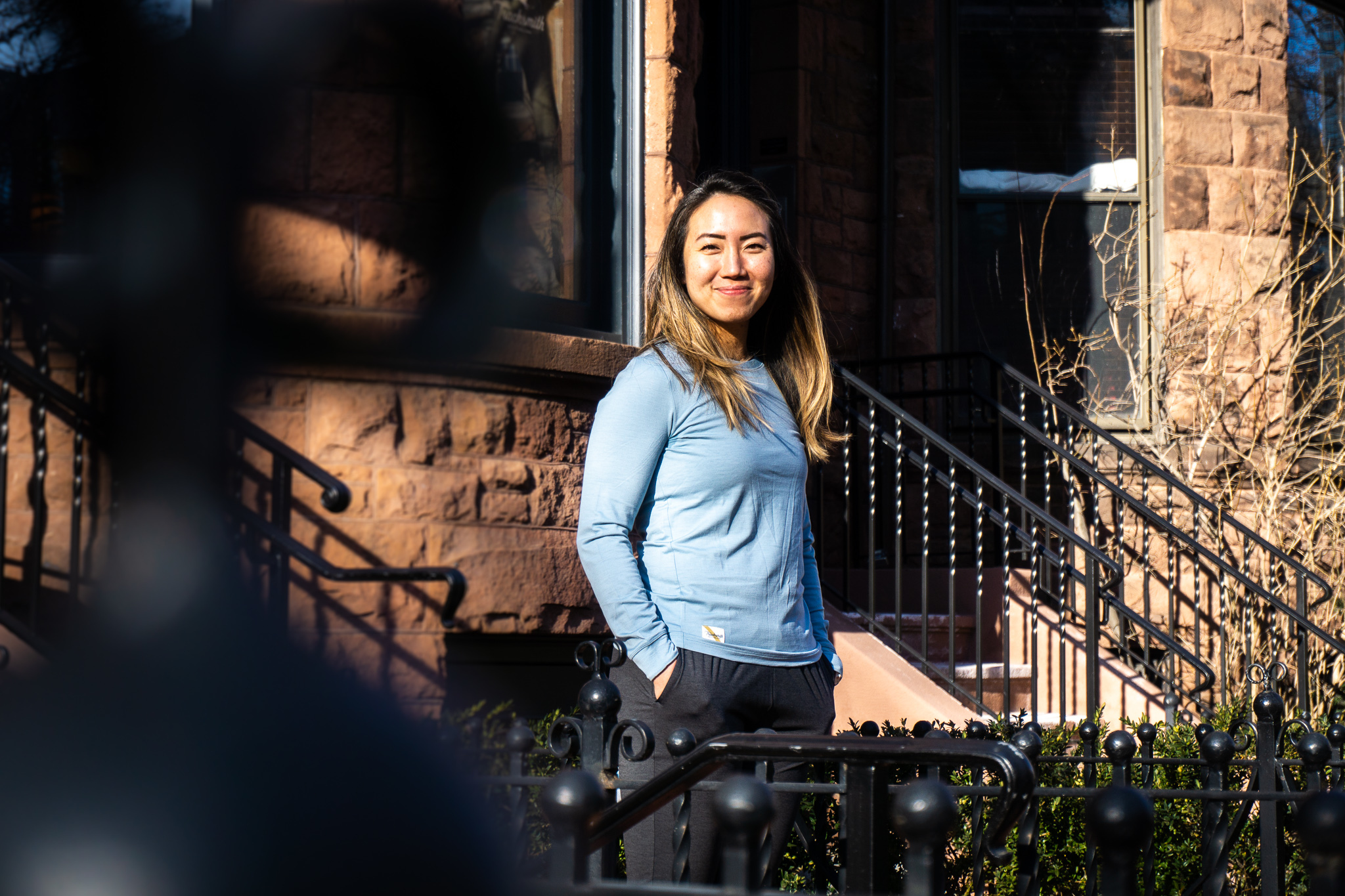
Carolyn Su:
Diverse We Run
Words and photos by Lou Serafini
This week’s Boston Digest newsletter features an interview with the founder of the Diverse we Run Instagram account, Carolyn Su. I was really excited for this conversation with Carolyn and I look forward to running with her in person the future. Carolyn shares some really excellent insights on the current state of the Boston running community and how we, as its citizens, can be more inclusive with one another.
LS: Hi Carolyn, thanks so much for taking the time. I'd love to start with a pretty broad question. For our readers that don't know you, tell us a little about yourself:
CS: Hey Lou, thanks for the opportunity to connect with our local Boston running community here! Hi everyone, I’m Carolyn, and I’m the creator of the Instagram platform, @DiverseWeRun, where I write weekly features of Black, Indigenous, and Runners of Color, to advocate for racial representation, equity, and inclusion in the running community. I’m first-generation Taiwanese-American, and I grew up straddling the expectations of two different cultures, while navigating the social impact of the Model Minority Myth.
I believe that our individual and collective history shapes how we show up in the sport of running, and that drives my advocacy in all spheres of life. We all need windows and mirrors to teach us about the world, and to show us we’re not alone in our journeys.
LS: You live just outside Boston, right? Can you tell us a few things that you love/don't love about being a runner here?
CS: Coming from Texas, where the weather is generally the same, I love how the changing seasons here allow a person to engage with the sport in more multi-faceted ways. Learning to adapt to each season — modifying your clothes & gear, adjusting your hydration & nutrition, tracking road viability…etc — grows a sense of humility and respect for nature and for the sport. We also learn how to appreciate and not take our bodies or the ability to run for granted. Plus, I will never cease to be amazed at how the same route can be completely different, depending on the time of year.
What I don’t love about being a runner here? The segregation. The running scene looks very different, depending on which neighborhood or community you run in. I’ve noticed that running groups tend to be very homogenous, depending on their home base. We need more concerted and committed efforts to bring together runners from all neighborhoods, especially if we want Boston to be an example of the real diversity in the sport and a leader in making social change.
LS: Are you personally training for anything now? And how has the pandemic affected your running?
CS: Yes! I’m currently training and preparing for the TransRockies Run, which is a 120+ mile, 6-day course through the Rocky Mountains (Arapaho Land, I believe). I’ve never done a multi-stage race before, and I’m also pretty new to trail running, but I am not afraid of trying new things! I definitely discussed the feasibility of training up for this with my coach, so I didn’t totally dive into this endeavor blindly.
Ironically, practicing social-distancing and WFH during the pandemic has given me a lot more opportunity to train: we can’t get together with ppl, so instead, my family has spent more time hiking and exploring new trails together; I’ve had a lot more phone meetings, so now I take them as opportunities to walk more miles outside. All of that helps add more time on my feet!

LS: You started the Instagram account @diversewerun which helps to build representation through story-telling, advocacy, and community. I loved hearing the story of why you decided to start it. Would you mind sharing a bit about that journey here?
CS: “Be the change you want to see” has been my life mantra and guidepost. Whenever there is a need recognized, I ask myself, “what needs to be done, and what is something I can do to make that happen?”
While I have been running for over two decades, it wasn’t until 2017 that I started to learn more of the “community” aspect to the sport. Up until then, I saw it as an individual activity. As I started to explore social media, follow more runners, and listen to running podcasts, I slowly started noticing a pattern: all the stories and images began to blur in repetition. The runners most often featured and the stories they described seemed to only reflect one pathway into running.
A lot of it was reminiscent of the neighborhood I grew up in: white, well-resourced, and insulated from many of the challenges and experiences of Black, brown, immigrant communities. The constant replay of this singular narrative of running reinforced the familiar implication of “otherness—” that I didn’t belong, because I didn’t match that image or definition of a runner.
After communicating with some of the “runfluencers” and podcasters in the sport to suggest a more inclusive scope, it became apparent that either people were unaware of the implicit biases being perpetuated, or they were uncomfortable making any changes. Most did not know of any non-white runners outside their own, homogenous audience and networks, and that automatically limited their understanding of the different lived-experiences that Black, Indigenous, or Persons of Color had in the sport.
Finally, at the end of 2018, I decided, if no one was going to do anything to recognize the journeys and stories of POCs, then I would. Thus, @diversewerun was born!
LS: What are your goals for the account and at a larger level, what are your goals for the sport and how do you think we as runners can grow?
CS: The purpose of @diversewerun is two-fold: to broaden the scope that people have of the sport (recognizing how race and culture shape the ease, accessibility, and participation), and to affirm the lived experiences of Black, Indigenous, and Runners of Color. With that in mind, my main goal for the account is to reinforce the understanding that BIPOC runners belong — that includes continuing to amplify our stories, providing opportunities for connection (whether online or IRL!), and sharing events or education opportunities.
I encourage ALL runners to take stock of the 5 most influential voices they have in life and evaluate: are they diverse? Do we have relationships with people who can provide correction or greater insight when we need? Or are we just surrounding ourselves with the same types of people? We all have potential for blind spots, and we are better positioned to learn and grow — both as individuals and also collectively — if we are intentional at building relationships with people who come from a variety of backgrounds and life experiences.
LS: Speaking specifically about Boston, what are some things you'd like to see in the community going forward and how can our readers get involved?
CS: I would love to see brands and groups invest more in Black and brown communities to develop meaningful relationships beyond just social media/virtual activism. How are we investing in schools and businesses in neighborhoods that are primarily Black and brown? What are the community-building organizations that are already doing work in these areas, and how can the sport of running intersect with meeting the needs that exist? Can there be investments in sports programs, or gear provided to young athletes, or grants given to individual change-makers (the Tracksmith Fellowship program is a great example of this!)?
Seek ways to elevate groups and individuals who are Black, Indigenous, or Persons of Color. Be willing to change current leadership structures, if they’re not representative of the inclusivity or representation that actually exists. Commit to on-going collaborations with various running leaders and groups, so that there is opportunity for relationships to be built.
Recognize that social change is long-term work.
LS: Where can our readers follow along with what you're doing and how can they learn more?
CS: You follow and connect with more BIPOC runners at @DiverseWeRun on IG! For any book-lovers, Diverse We Run also has a bookshop.org page now, where you can find books for adults and kids that are written by Black, Indigenous, or Persons of Color.
You can also find more resources, the work I’m currently doing, and my own running journey at @irunfortheglory, which is my personal IG page.
LS: What is your favorite running route in the Greater Boston area and why?
CS: My favorite route in Boston is to start at Harvard Square in the early morning and run along the Charles River Esplanade to greet the sunrise. As the city, sights, and sound wake up, so does my breath, my cadence, and my spirit. I am reminded of how grateful I am to be alive.

